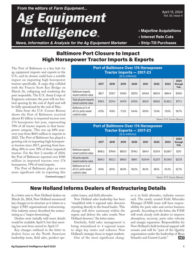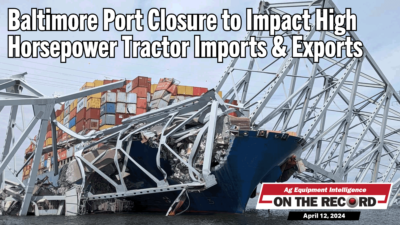Oct. 25, 2019 — Last week’s supplement proposal from the U.S. Environmental Protection Agency (EPA) concerning ethanol blending requirements was met with considerable backlash from both ethanol and oil lobbies, according to a report from Reuters. The proposal, as outlined by the EPA, plans to account for the blended gallons of ethanol lost in small refinery exemptions based on a 3 year average of those exemptions, then apply those losses to the total ethanol blending requirements for the year. The official statement from the EPA says that this proposal is meant to “ensure that the industry blends the final volumes of renewable fuel into the nation’s fuel supply and that, in practice, the required volumes are not effectively reduced by future hardship exemptions for small refineries.”
Many lobbying for the ethanol industry expressed concern that the 3 year estimates meant to offset the gallons lost to small refinery exemptions would be “recommended” by U.S. Department of Energy (DOE), as opposed to being based on the actual number gallons exempted, which was an idea mentioned back in August by Trump as a potential solution.
The EPA’s announcement follows a comment from Trump earlier this month that the coming proposal from the EPA was “going to be…getting close to 16 billion [gallons],” according to Reuters.
Iowa Renewable Fuels Assn. executive director Monte Shaw pointed out the lack of clarity, saying, “Instead of standing by President Trump’s transparent and accountable deal, EPA is proposing to use heretofore secret DOE recommendations that EPA doesn’t have to follow.”
Another comment against the proposal came from the National Biodiesel Board, who said, “The supplemental notice contains a never-before-discussed proposal to estimate small refinery exemptions, with no assurance that the estimate will come close to actual exemptions.”
Even those in the oil industry were dissatisfied with the proposal, based mostly on the idea that the exempted gallons shouldn’t be made the responsibility of un-exempted refineries when added back into the yearly blending requirements.
“There is simply no logic in forcing complying refineries to bear the burden of decisions outside of their control,” said Frank Macchiarola, vice president of downstream and industry operations at the American Petroleum Institute.
Efforts have already been made by the EPA in 2019 to boost the ethanol industry, including boosting 2020 blending requirements by 0.6% in July and approving year-long sales of E15 fuel in June.




Post a comment
Report Abusive Comment